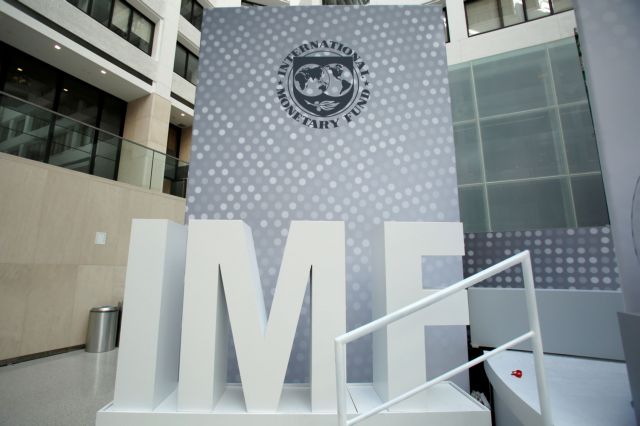
The devil is in the details. Five phrases in the report of the International Monetary Fund, confirm the relevant opinion, and cast “shadows” over the general positive picture for the Greek economy, specifying what is expected in the coming period.
Usually in IMF reports, the so-called “asterisks” are more important than the general picture of the economy. This was understood in our country – in an extremely painful way – during the last decade when the three burdensome memoranda were implemented.
At least a decade before the collapse of the Greek economy and the implementation of three memoranda that followed, the international organization’s reports were full of “asterisks, bells and warnings”, which – usually – did not fall upon “willing ears”.
What followed probably heightened and made more careful – at least – the official recipients of the report.
The asterisks
The details of the recent IMF report, which cast “shadows” over the general picture, more or less refer to known problems of the Greek economy. At the same time, these reports largely specify the measures that are being taken or will be taken in the near future.
The first recommendation concerns the “imminent codification of labor law”, which should “enhance labor market flexibility”. The process of adopting a number of changes is already underway, which concern labor legislation and contribute to what international organizations describe as “labor market flexibility”.
The minimum wage
The second, equally important prompt, concerns the minimum wage. “Adjustment of minimum wages must be prudent,” the report said. And this comes a few days after the climate in the government, has been reversed and the prevailing view is that in 2021 there should be no increase in the minimum wage, while in 2022 the increase should be reasonable and not exceed inflation. “Don’t expect much concerning the upcoming increases,” warns a government official.
The report does not lack the “known reference” to pensions. The need to “save on pension costs” is highlighted. In the field of insurance, developments have been launched, which are expected to take the form of a bill within June. Of course, the government is focusing on the changes in the second pillar of the supplementary pension, while it is not clear whether the recommendation of the IMF report is limited to that.
However, this is an important reform, which drastically changes the existing data of our insurance system. It should be noted that the transformation of the existing auxiliary insurance system into a capitalization, had been announced in the run-up to the elections by the ruling party.
The fund also recommends further reducing non-wage costs, something the government has already begun, stating that this program (cost reduction) will continue in the coming years. What remains unclear is how the revenues that came from this source and financed social actions (OAED, etc.) will be replenished.
The puzzle
Finally, the reference of the Fund to the public sector, where it recommends “wage interventions”, as it states “the number of civil servants is returning to pre-crisis levels” causes a peculiar sensation. At this point, it is not clear whether, in addition to “wage interventions”, it also constitutes “interventions” in the number of civil servants.
Latest News

Greece Defines Continental Shelf Limits and Maritime Zones in Landmark EU Document
The Maritime Spatial Planning (MSP) framework represents a comprehensive approach to spatial planning and is crucial for the successful development of a blue and circular economy

EU Praises Greece’s RRF Progress as Revised Recovery Plan Nears Completion
Athens is preparing to submit its revised “Greece 2.0” Recovery and Resilience Plan after Easter, with a slight delay from the initial timeline but with the European Commission’s approval.

Greek €200M 10Y Bond to be Issued on April 16
The 3.875% fixed-interest-rate bond matures on March 12, 2029, and will be issued in dematerialized form. According to PDMA, the goal of the re-issuance is to meet investor demand and to enhance liquidity in the secondary bond market.

German Ambassador to Greece Talks Ukraine, Rise of Far Right & Tariffs at Delphi Economic Forum X
Commenting on the political developments in his country, the German Ambassador stressed that it was clear the rapid formation of a new government was imperative, as the expectations across Europe showed.

Athens to Return Confiscated License Plates Ahead of Easter Holiday
Cases involving court orders will also be excluded from this measure.

Servicers: How More Properties Could Enter the Greek Market
Buying or renting a home is out of reach for many in Greece. Servicers propose faster processes and incentives to boost property supply and ease the housing crisis.

Greek Easter 2025: Price Hikes on Lamb, Eggs & Sweets
According to the Greek Consumers’ Institute, hosting an Easter dinner for eight now costs approximately €361.95 — an increase of €11 compared to 2024.

FM Gerapetritis Calls for Unified EU Response to Global Crises at EU Council
"Europe is navigating through unprecedented crises — wars, humanitarian disasters, climate emergencies," he stated.

Holy Week Store Hours in Greece
Retail stores across Greece are now operating on extended holiday hours for Holy Week, following their Sunday opening on April 13. The move aims to accommodate consumers ahead of Easter, but merchants remain cautious amid sluggish market activity.

Green Getaway Ideas for Easter 2025 in Greece
Celebrate Easter 2025 in Greece the sustainable way with eco-farms, car-free islands, and family-friendly getaways rooted in nature and tradition.









































 Αριθμός Πιστοποίησης
Αριθμός Πιστοποίησης